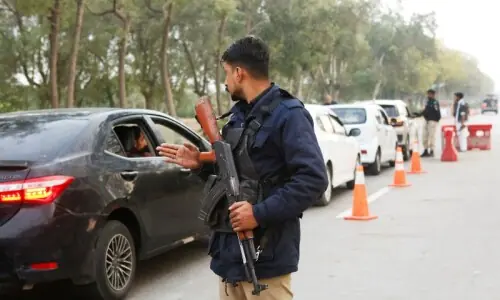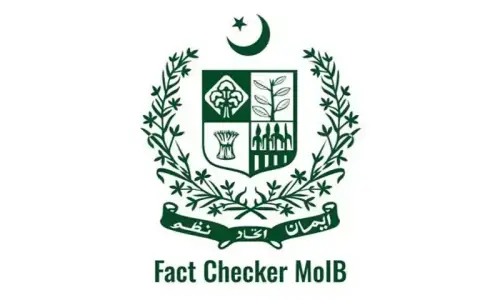
LAHORE, Pakistan: Militants in Pakistan should reap a cash bonanza from selling skins of animals slaughtered on a sacrifice day, with hundreds of thousands of dollars expected to reach a group linked to the 2008 Mumbai attackers, according to an ex-member of the group and leather industry workers.
Volunteers for Jamaat-u-Dawa, a charity suspected of having served as a front for the group behind the Mumbai attacks, were collecting bloodied skins across the country after this year's Eid al-Adha, or Feast of Sacrifice. Their work shows the deep roots it and other banned groups have in Pakistan.
Militants behind attacks in Pakistan and across its borders in Afghanistan and India get funds from extortion, drugs, kidnappings and donations from foreign sympathizers. But some of the money comes by way of charities, including those collecting hides to raise funds. In past years also, they have sold hides to raise funds.
Wealthy Muslims sacrifice animals on Eid al-Adha and distribute most of the meat to the poor. Over this year's holiday, which fell last week, Pakistanis sacrificed around five million sheep and goats and one million cows, according to the country's tanners association.
The skins are of no use to those who kill the animals, but are snapped up by tanneries.
At auctions in the coming days, a cow hide is expected to sell for between $40 and $50, while sheep and goat skins will fetch around $7 a piece.
Skins collected last week will account for around 45 per cent of the needs of Pakistan's leather industry this year, the tannery association said. Factories make coats, gloves and other goods for export, and the trade is the second largest foreign exchange earner for the country.
Militant groups are not the only ones to benefit from hide sales. The leading hide collector in Karachi, the country's largest city, is its ruling party. Another major beneficiary is a cancer hospital for the poor run by Imran Khan, a cricketer turned politician. Sunni Therik, a religious group that is opposed to militants, also collects. Some people give their hides directly to the poor, who sell them.
Groups and their sympathizers are in a good position to collect the skins. The typically run religious seminaries that have thousands of children and youth who can go door-to-door to collect them from people happy to have them taken from their front porch. Often, people bring animals to be sacrificed directly to mosques attached to them.
''These are the people whom I trust and these are the people who do the best work for charity,'' said Illahi Shaikh, as he directed a team of butchers cutting up his two cows outside Jamaat-u-Dawa's main mosque in the capital, Islamabad.
''So what if America calls them terrorists, I don't care,'' he said.
The United Nation's listed Jamaat-u-Dawa as a terrorist group soon after the Mumbai attacks, saying it believed it was an alias for Lashkar-e-Taiba, the Pakistani outfit believed to have carried out the strikes. India, Washington and other Western nations have made similar allegations.
Islamabad initially moved against the group, sealing its offices, freezing assets and rounding up leaders. But it has since scored a few wins against the government in court and is up and running again. It sometimes uses a different name, a tactic employed by other banned groups to try to evade attention.
Abdullah Muntazir, a former Jamaat-u-Dawa spokesman who now runs an institute researching militancy, said in 2009 it earned about 100 million rupees, or around $1.2 million at current exchange rates, from hide sales.
''The revenue is likely to increase this year,'' he said. ''The group has got more popularity due to its charity work in the wake of the recent floods.''
Yahya Mujahid, Jamaat-u-Dawa's current spokesman, contested that figure, saying the group sold 25,000 skins that year, but did not say how much it earned or give any more details.
Mohammad Ilyas, who works at the animal skin market in Lahore, where Jamaat-u-Dawa is based, said in 2008 he processed and salted the group's hides at their headquarters, which he said numbered around 100,000 pieces. In 2006, the group sold 103,000 skins to Shafi Tannery, said Mohammad Sharif, the company's accountant.
Those figures appear reasonable given that the cancer hospital run by Imran Khan said it collects around 50,000 skins a year. While popular with many wealthy Pakistanis, the hospital's charitable trust does not have the national reach of Jamaat-u-Dawa and related groups, especially in the small towns and villages of highly populated Punjab.
In Islamabad alone this year, the group collected 2,500 skins on the first day of the three-day holiday, members of the group at the Quba mosque said. They were piled up in a heap outside the building. The capital is home to less than one million people and is not a stronghold of group.





























